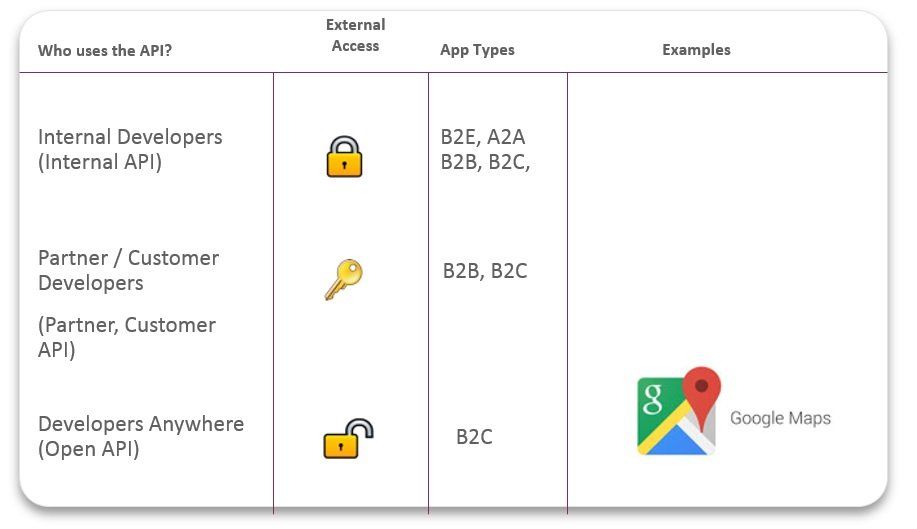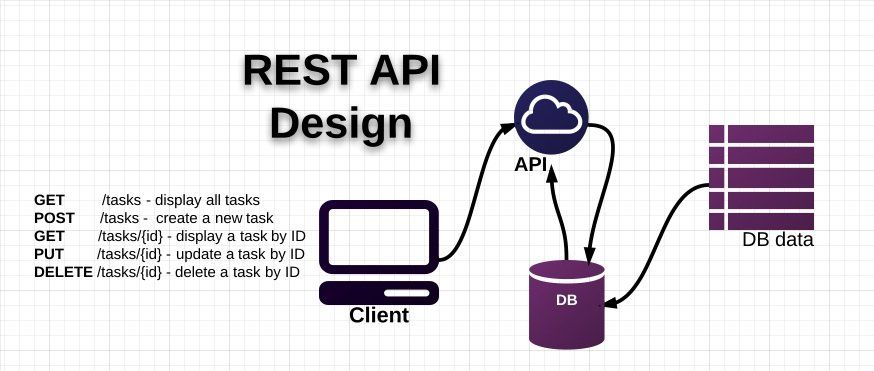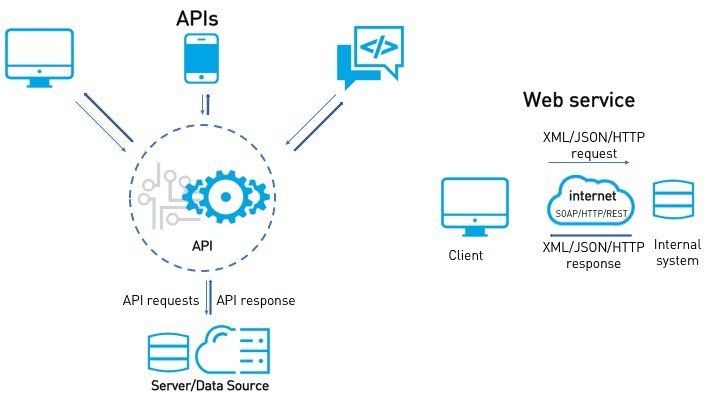7 min to read
Different Types Of API For Web Development 2022
For effective API performance, it’s imperative to determine the optimal type of API in the building/ designing of the architecture. Today, APIs have reached a higher sophistication level, which is further classified into types of API to achieve a better understanding of the API concepts. According to Wikipedia– An application programming interface (API) is a computing interface that defines interactions between multiple software intermediaries. It defines the kinds of calls or requests that can
For effective API performance, it’s imperative to determine the optimal type of API in the building/ designing of the architecture. Today, APIs have reached a higher sophistication level, which is further classified into types of API to achieve a better understanding of the API concepts.
According to Wikipedia– An application programming interface (API) is a computing interface that defines interactions between multiple software intermediaries. It defines the kinds of calls or requests that can be made, how to make them, the data formats that should be used, the conventions to follow, etc.
APIs have revolutionized the world of technology since first-generation computers. APIs are core programming concepts, which every programmer must learn to achieve higher proficiency levels at the workplace.
It’s important to understand various types of API for API developers that will work best for a project based on several factors like its intended use case, who will be using and accessing these APIs, and the systems and datasets that need to be connected.

Types of API
There are 4 main types of APIs(Application Programming Interface) by availability/release policies-
- Open APIs (Public APIs)- Publicly available to developers and other users with minimal restriction. They may require registration, use of an API Key or OAuth, or maybe completely open. They focus on external users, to access data or services.
- Partner APIs- These are APIs Exposed by/to the strategic business partners. They are not available publicly and need specific entitlement to access them. Like open APIs, partner APIs are the tip of the iceberg because they are the most visible ones and are used to communicate beyond the boundaries of the company. They are usually exposed to a public API developer portal that developers can access in self-service mode. While open APIs are completely open, there is an onboarding process with a specific validation workflow to get access to partner APIs.
- Internal APIs (private APIs)- They are hidden from external users and only exposed by internal systems. Internal APIs are not meant for consumption outside of the company but rather for use across different internal development teams for better productivity and reuse of services. A good governance process consists of exposing them to an internal API developer portal that connects to the internal IAM systems to authenticate and authorize users to access the right set of APIs.
- Composite APIs- Combine multiple data or service APIs. They are built using the API orchestration capabilities of an API creation tool. They allow developers to access several endpoints in one call. Composite APIs are useful in micro-services architecture patterns, where you need information from several services to perform a single task.

Also Read- VARIOUS TOOLS USED FOR API TESTING
Types of API Protocol/Specifications
API protocol/specifications standardize the data exchange between web services. Here, standardization means the ability of diverse systems, written in different programming languages and/or running on different OSs, or using different technologies, to seamlessly communicate with each other.
1. Rest Web APIs (Representational State Transfer)
REST (Representational State Transfer), a web API stands for the production of enterprise-grade web applications. This API uses the HTTP standard to work with resources like CONNECT, TRACE, HEAD, POST, GET, PUT, PATCH, AND DELETE.
Rest API gives you the ability to grow your web development by reusing components without affecting the process as a whole. It aims for fast performance, reliability, and ease of use.
Expedia and Twitter are using RESTful web API to improve their app performance even more. With the ability to support different formats such as XML, HTML, YAML, and JSON, REST is the indomitable choice for building custom web applications.

Benefits of REST Web API
- It requires minimum bandwidth to build apps.
- It is driven by data, not functions.
- It has easy guidelines to follow that allow developers to build applications easily.
- Works on JSON that supports only text and numbers.
- REST web APIs are optimized for web apps.
- Uses a single uniform interface.
2. SOAP Web APIs (Service Object Access Protocol)
SOAP works in a decentralized distributed environment to maintain the communication between request and response messages sent by web applications.
SOAP web API supports XML format which is a very flexible text format used to exchange information over the internet or other web networks. XML defines a set of rules for the security of documents for both humans and machines.
Eventually, every web application will need a SOAP web API (Service Object Access Protocol) to ensure the security of the transmitted data of your app.
SOAP web APIs are suitable for building payment gateway apps, CRM solutions, identity management as well as telecommunication services. PayPal is using SOAP APIs. Amazon is also using SOAP and REST APIs to expand data storage on professional web applications. Similarly, SalesForce API uses SOAP web APIs to implement custom features to pre-build web applications.

Benefits of SOAP Web API
- SOAP web APIs are driven by functions
- Adds more security to web applications
- It has strict rules to follow for developers
- Works on XML that supports various images, graphs, charts, numbers, texts, etc.
3. RPC Web APIs (Remote Procedural Calls)
RPC web APIs are the simplest form of the APIs listed here. These APIs work on the principles of Remote Procedure Call that specify the interaction between client-server-based applications.
RPC web APIs are also known as the “function call” or “subroutine” in which one program or client requests data from the server and the server sends the required response to the client. Briefly put, RPC web APIs are about sending a message that might end up storing information in the database to keep a history.
Benefits of RPC Web API:
- RPC web APIs are great for adding commands and procedures.
- A great option for making CRUD (create, read, update, delete) to your app data.
- In RPC only GET (for getting the information) and POST for modifying information are used.
- Support both data types JSON and XML.
Types of API by Use Cases
APIs can be classified according to the systems for which they are designed.
- Database APIs- Database APIs enable communication between an application and a database management system. Developers work with databases by writing queries to access data, change tables, etc.
For example,-The Drupal 7 Database API allows users to write unified queries for different databases, both proprietary & open source (Oracle, MongoDB, PostgreSQL, MySQL, CouchDB, and MSSQL).
Another example is ORDS database API which is embedded into Oracle REST Data Services.
2. Operating systems APIs. This group of APIs defines how applications use the resources and services of operating systems. Every OS has its set of APIs, for instance- Windows API or Linux API(Kernel-user space API & Kernel internal API).
Apple provides API references for macOS and iOS in its developer documentation. APIs for building applications for Apple’s macOS desktop operating system is included in the Cocoa set of developer tools. Those building apps for the iOS mobile operating system use Cocoa Touch – a modified version of Cocoa.
3. Remote APIs- Remote APIs define standards of interaction for applications running on different machines. In other words, one software product accesses resources located outside the device that requests them.
Since two remotely located applications are connected over a communications network, particularly the internet, most remote APIs are written based on web standards.
Java database connectivity API and Java remote method invocation API are 2 examples of remote application programming interfaces.
4. Web APIs– This is the most common API class. Web APIs provide machine-readable data and functionality transfer between web-based systems which represent database management systems.
These APIs mainly deliver requests from web applications and responses from servers using Hypertext Transfer Protocol (HTTP).
Developers can use web APIs to extend the functionality of their apps or sites. For instance, the Pinterest API comes with tools for adding users’ Pinterest data like boards or Pins to a website. Google Maps API enables the addition of a map with an organization’s location.
In Conclusion
- After learning about different types of API, we now know that it is not possible to have only one web API. And, it is obvious that your web application can easily work on multiple web APIs/ additional services.
- As businesses have started looking to add more dynamic systems to their apps the importance of web APIs (Application Programming Interfaces) has increased hugely in building dynamic enterprise-grade applications.
- However, you have to make a choice between the rules of REST, SOAP, or RPC and then you would have one web API for your web application development project.
- Knowledge about web APIs is greatly useful when you are planning to work on a new project of web app development.
- It can also be helpful when you are working on the features for your existing web APIs.
- It is crucial to choose the right web API that addresses the need of your business model and the need for your application development or program.
- An efficient API developer must know that one of the biggest challenges of building an app with API is choosing the one that will last.
We at Codersera are focused on delivering excellent development services and also fulfilling your app maintenance needs. We take great pride in our best remote Node developers, React developers, coders, engineers, freelancers, architects,s and consultants. Top companies and startups hire remote API developers for their Products, Projects, MVPs, and Proof of concepts (POC). Hire Codersera API developers to make your application strong in performance, reliability, and scalability.
We hope you have gathered useful information about types of API and which one is right for a particular project. If you have any questions, feel free to post in the comment section below.
FAQ
Q1. What is an API in web development?
Ans- API stands for Application Programming Interface. A Web API is an application programming interface for the Web. A Browser API can extend the functionality of a web browser. A Server API can extend the functionality of a web server.
Q2. Is an API free?
Ans- An Open API may be free to use but the publisher may limit how the API data can be used. They are based on an open standard.
Q3. Is API a Web service?
Ans- Web service is a collection of open-source protocols and standards used for exchanging data between systems or applications whereas API is a software interface that allows two applications to interact with each other without any user involvement. All Web services are APIs but all APIs are not web services.
🚀 Try Codersera Free for 7 Days
Connect with top remote developers instantly. No commitment, no risk.
Tags
Trending Blogs
Discover our most popular articles and guides
10 Best Emulators Without VT and Graphics Card: A Complete Guide for Low-End PCs
Running Android emulators on low-end PCs—especially those without Virtualization Technology (VT) or a dedicated graphics card—can be a challenge. Many popular emulators rely on hardware acceleration and virtualization to deliver smooth performance.
Android Emulator Online Browser Free
The demand for Android emulation has soared as users and developers seek flexible ways to run Android apps and games without a physical device. Online Android emulators, accessible directly through a web browser.
Free iPhone Emulators Online: A Comprehensive Guide
Discover the best free iPhone emulators that work online without downloads. Test iOS apps and games directly in your browser.
10 Best Android Emulators for PC Without Virtualization Technology (VT)
Top Android emulators optimized for gaming performance. Run mobile games smoothly on PC with these powerful emulators.
Gemma 3 vs Qwen 3: In-Depth Comparison of Two Leading Open-Source LLMs
The rapid evolution of large language models (LLMs) has brought forth a new generation of open-source AI models that are more powerful, efficient, and versatile than ever.
ApkOnline: The Android Online Emulator
ApkOnline is a cloud-based Android emulator that allows users to run Android apps and APK files directly from their web browsers, eliminating the need for physical devices or complex software installations.
Best Free Online Android Emulators
Choosing the right Android emulator can transform your experience—whether you're a gamer, developer, or just want to run your favorite mobile apps on a bigger screen.
Gemma 3 vs Qwen 3: In-Depth Comparison of Two Leading Open-Source LLMs
The rapid evolution of large language models (LLMs) has brought forth a new generation of open-source AI models that are more powerful, efficient, and versatile than ever.